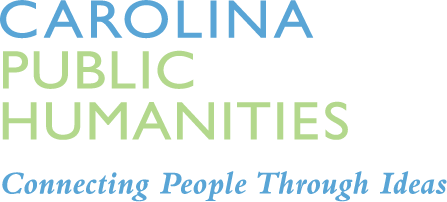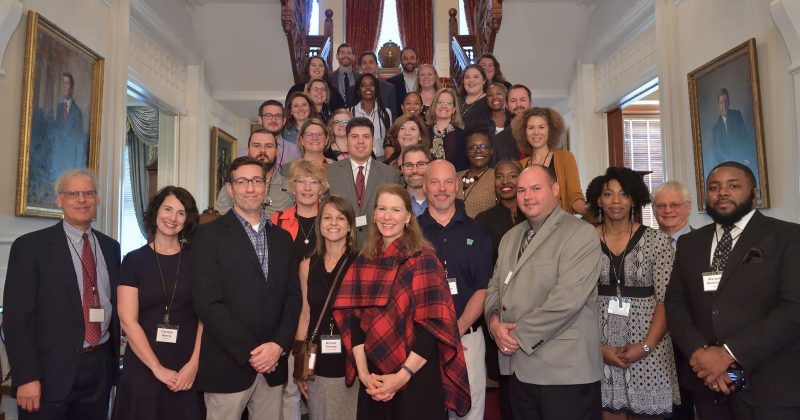Teaching Hard History
Nations reel and stagger on their way; they make hideous mistakes; they commit frightful wrongs; they do great and beautiful things. And shall we not best guide humanity by telling the truth about all this, so far as the truth is ascertainable?
W. E. Burghardt Du Bois (1935)
Carolina K-12 believes that it is essential that teachers learn, openly discuss and responsibly teach about our nation’s shared “hard history” to ensure students understand the implications of our past, their direct connections to our present, and are empowered to address the challenges of the future. To support North Carolina’s dedicated K-12 scholars seeking to teach a balanced, comprehensive and complex history education, Carolina K-12 launched the “Teaching Hard History” initiative in 2018. Based upon the recommendations of the seminal report by the Southern Poverty Law Center, Teaching the Hard History of American Slavery, Carolina K-12 has worked with various community partners to provide teachers with FREE, high quality and interactive workshops that provide a mixture of vetted and balanced historical content, primary sources, access to top scholars and artists, effective pedagogical strategies, and measures of success to employee for addressing “hard history” and potentially controversial current events in the classroom safely and effectively.
As the incredible poet, Amanda Gorman said, “Being American is more than a pride we inherit. It’s the past we step into and how we repair it.” These events encourage participants to critically examine and reconsider aspects of our past and present in a way that focuses on hope, resistance, Black & indigenous agency, resilience, empowerment, and reconciliation. In a time when everything, from discussions of our past to debates of our present, feels particularly fraught with discomfort and controversy, attending educators are also provided the opportunity to explore their challenges and fears of teaching in today’s polarized political climate, while building relationships with and listening to the lived experiences of the diverse educators from all across the state that fill each cohort.
The initiative includes:
- Three-day intensive workshops offered free of charge to currently practicing educators, with single-occupancy hotel accommodations and meals included
- E-mail CarolinaK12@unc.edu to be added to our e-newsletter which provides updates of future offerings. Recordings of virtual programs are available below.
- E-mail CarolinaK12@unc.edu to be added to our e-newsletter which provides updates of future offerings. Recordings of virtual programs are available below.
- Online/virtual sessions that focus on “hidden” histories and include discussion on how to teach difficult and potentially controversial topics in the classroom. See below to access previous programs, and e-mail CarolinaK12@unc.edu to be added to our e-newsletter which provides updates of future offerings.
- A network of support for sharing resources, having conversations, and supporting one another in this critical work.
- CEUs are available for all programming, including virtual programs. Click here for more information on requesting CEUs for virtual programming.
For additional information about this initiative, please contact Christie Norris (cnorris@unc.edu).
“…our history is neither an unbroken march of progress nor a doom loop of despair. It’s a complicated mess, just like the present. And having a sense of curiosity about where we came from is an act of civic pride.” Eric Johnson
Recordings & Supplemental Resources
Visit Carolina K-12’s recommendations and tips for planning and engaging in safe and effective teaching of “hard history” here. We also recommend consulting resources and lessons from vetted organizations such as Teaching Tolerance and Facing History and Ourselves, as well as consulting the US Holocaust Memorial Museum’s Guidelines for Teaching About the Holocaust, which are beneficial to follow when covering any difficult history, including American slavery and Jim Crow.
Available recordings include:
- An Introduction to Teaching Hard History: The “Why” & the “How” | RECORDING
- Rifles, Radio & Resistance: Robert Williams & the Black Freedom Movement | RECORDING | LESSON PLAN | RESOURCES
- Wilmington 1898: The Hidden History of An American Coup D’État | RECORDING | LESSON PLANS | RESOURCES
- More Than a Mill Worker: Ella May & the Loray Mill Strike | RECORDING | LESSON PLAN | RESOURCES
- Challenging Misconceptions of Slavery: The Life of Omar ibn Said | RECORDING | RESOURCES
- Teaching with the “Light of Truth” in the K-12 Classroom: Ida B. Wells & Racial Terror Lynching | RECORDING | LESSON | RESOURCES
- My NC from A to Z: A Conversation with Michelle Lanier on NC’s Rich African American History, Heritage & Culture
- Jim Crow in North Carolina | RECORDING | RESOURCES
- From 1770 to 2020: Race, Revolt and Resistance
For additional program recordings from Carolina K-12, visit (and subscribe to) our YouTube playlist available here.
“It has taken me a lifetime to discover that true emancipation lies in the acceptance of the whole past, in deriving strength from all my roots, in facing up to the degradation as well as the dignity of my ancestors.” Pauli Murray


